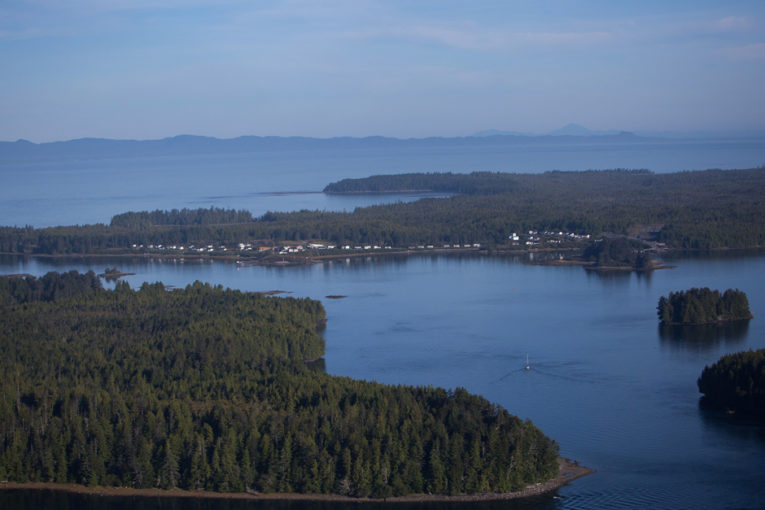
As protesters in British Columbia’s Lower Mainland go berserk over tankers from the federally approved Kinder Morgan Trans Mountain expansion, First Nations in the Northern Coast are suing governments for banning them.
The Lax Kw’alaams Indian Band says it filed a civil claim in the Supreme Court of British Columbia Thursday against the federal and provincial governments. It seeks to declare Prime Minister Justin Trudeau’s tanker ban “an unjustified infringement on the plaintiffs’ aboriginal rights and title.”
It also knocks British Columbia’s establishment of the Great Bear Rainforest, which the ban aims to protect, but which the band disputes because it says it was implemented in its traditional lands without its consent.
The Lax Kw’alaams are among 30 First Nations that launched a GoFundMe campaign in January to challenge the tanker ban in court that has raised $33,000 so far — a third of its target. Other First Nations that support the Eagle Spirit oil pipeline and energy corridor, which requires tankers to transport Alberta oil to Asia, are expected to file similar lawsuits.
For a prime minister that made Indigenous reconciliation and the environment a priority, the court challenge is a problem.
First, it demonstrates yet again that many First Nations have their own ideas about reconciliation and environmental protection. They include responsible energy development as a way to take charge of their destiny and become less dependent on government income and control.
It’s also a setback for Trudeau’s carbon-tax-for-pipeline-approvals scheme. Trans Mountain, the one pipeline he reluctantly got behind, is under daily attack by protesters who organize photos and interview opportunities like public relation pros, gloat about breaking the law, and don’t care about his national climate change objectives.
On the other hand, the Eagle Spirit pipeline, which he’s suppressing through a tanker ban championed by many of the same activists, is gaining momentum because of Indigenous leadership and because the Trans Mountain project looks so challenged.
The 3,800-member Lax Kw’alaams based near Prince Rupert are a collective of nine tribes that opposes Bill C-48, known as the Oil Tanker Moratorium Act. The ban was announced by the Prime Minister soon after his election and has passed a second reading in Parliament.
According to the 11-page claim by John Helin, Mayor of the Lax Kw’alaams, the tribes have unextinguished title over a vast region of the Northern Coast and weren’t consulted about the ban.
The tribes are the present-day descendants and holders of the collective aboriginal rights of the Coast Tsimshian Nation that have never been lawfully extinguished, the claim says.
“The plaintiffs’ aboriginal title encompasses the right to choose to what uses the land can be put, including use as a marine installation subject only to justifiable environmental assessment and approval legislation,” according to the claim seen by the Financial Post.
The tanker ban “discriminates gains the plaintiffs by prohibiting the development of land … (in) an area that has one of the best deep-water ports and safest waterways in Canada, while permitting such development elsewhere in British Columbia and Canada where waterways are congested and obstructed by a maze of islands, bridges, ships and other hazards to marine traffic.”
The band claims the federal government imposed the tanker ban deliberately to “thwart this plan and the ability of the plaintiffs to create economic support for their community based on the development of an oil export facility.”
The $16 billion the Eagle Spirit project is supported by First Nations from Brudenheim, Alta., to Grassy Point near the Lax Kw’alaams. The project has developed a contingency plan to locate the pipeline’s endpoint in Hyder, Alaska, if the tanker ban stands.
The band said it proposed to the federal government that the boundary of the oil tanker moratorium be set at a latitude that would still allow oil tankers from the Eagle Spirit project to sail through a lane in Dixon Entrance, “but Canada has not considered or responded to this request.”
The claim seeks a declaration that the ban is an unjustified infringement on the band’s aboriginal rights and title and doesn’t apply to its lands.
For its part, the federal government says it’s delivering on its promise to formalize the tanker bank on the North Coast.
“This will protect this incredible environment that coastal and Indigenous communities call home, and ensure clean water for our kids and grandkids,” Delphine Denis, press secretary to transportation minister Marc Garneau, said in an emailed statement.
The federal government held 75 engagement sessions to discuss improvements to marine safety and formalize the oil tanker moratorium, Garneau engaged directly with all Indigenous groups along the north and central coast of British Columbia that would be affected or expressed an interest in the moratorium, and the government held a further 20 meetings with Indigenous groups, she said.
Eagle Spirit proponents say consultation is a formal and extensive process, Ottawa didn’t follow it, and have other ideas about how to protect their kids and grand kids that involve not being poor.
Financial Post
• Email: [email protected] | Twitter: cattaneooutwest
You can read more of the news on source
